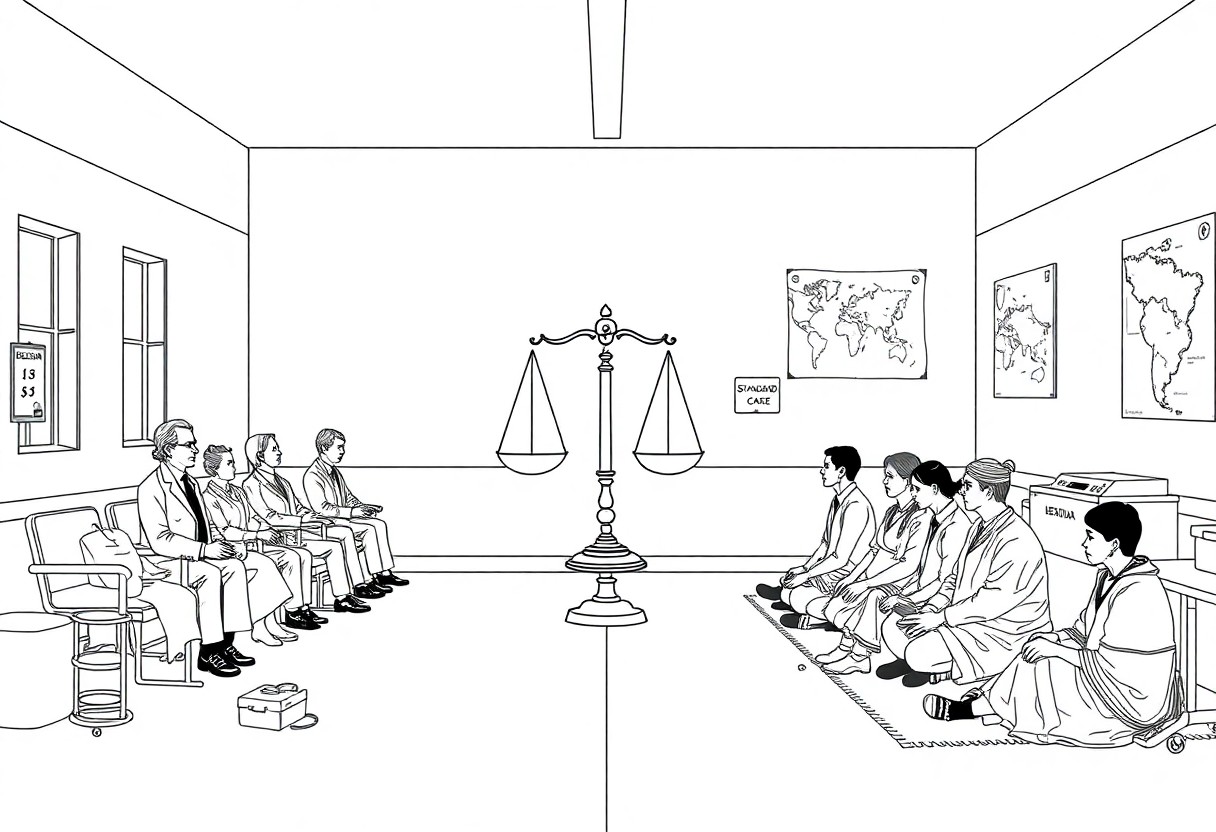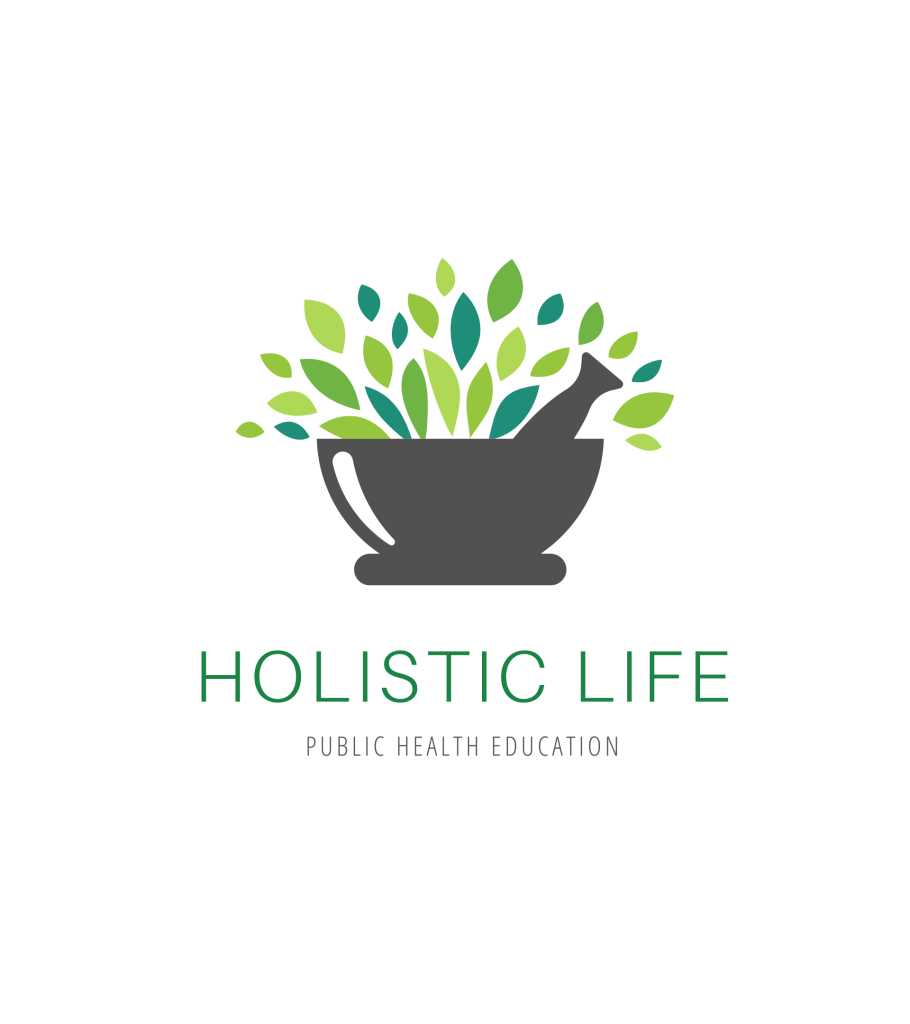Just when you think you understand the concept of “standard of care,” it becomes apparent that in a colonized system, this notion is distorted. I want to share with you the dangerous implications of how marginalized communities are often subjected to a lower standard of health care, leading to devastating consequences. By examining the systemic inequities at play, you will see the urgent need for reform. For insights into this pressing issue, check out 4 Justifying a Lower Standard of Health Care for the ….
Key Takeaways:
- The concept of “Standard of Care” often reflects the dominant cultural practices rather than universal medical guidelines.
- Systems of colonization can distort medical practices and lead to inequitable health outcomes for marginalized populations.

The Genesis of “Standard of Care” in Colonial Contexts
The establishment of “standard of care” within colonial contexts reveals a complex interplay between imperial agendas and local healthcare practices. Initially, during the expansion of colonial empires, European powers imposed their medical models on indigenous populations, often disregarding traditional healing methods. This resulted in a framework where standards were dictated by colonial authorities, reflecting a cultural bias that favored Western medical practices while minimizing local knowledge and needs.
Historical Foundations of Medical Standards
The historical foundations of medical standards emerged from a mix of scientific advancements and colonial ambitions. The 19th century witnessed the rise of modern medicine characterized by the introduction of germ theory and antiseptics. Colonial governments adopted these advancements, integrating them into their medical systems, yet often sidelining indigenous practices. As a result, the definition of care was skewed, prioritizing Western interpretations and effectively establishing a medical hierarchy that devalued local expertise.
Shifting Paradigms: Colonialism and Healthcare Ethics
Colonialism significantly shifted paradigms of healthcare ethics, as the imposition of Western medical norms frequently disregarded the autonomy and dignity of colonized peoples. The ethics of care became entwined with power dynamics, where subjects had little say in their treatment. I observe how this has led to a lingering mistrust in healthcare systems for many communities today, as historical injustices perpetuate the perception that medical standards remain biased and culturally disconnected.
Examining the effects of colonialism on healthcare ethics reveals that the imposition of “standard of care” served more as a tool of control than a genuine concern for wellbeing. For example, during the British colonization of India, Western medicine was not only introduced but often enforced, often sidelining Ayurvedic practices which had been effective for centuries. This conflict created ethical dilemmas wherein patients were stripped of agency, raising critical questions relevant today about informed consent and cultural competency in medical practices. The remnants of these colonial attitudes continue to influence healthcare disparities and accessibility, demanding a reevaluation of what constitutes equitable care in modern contexts.
The Flaws in Applying Colonial Standards to Modern Healthcare
Colonial frameworks often emphasize uniformity over individuality, resulting in healthcare practices that fail to accommodate the diverse needs of contemporary populations. Relying on outdated, colonially derived metrics inhibits true progress. The use of standardized treatment protocols can overlook social determinants of health and amplify health disparities, revealing an urgent need to reassess these benchmarks to better serve today’s communities.
The Disparity in Access and Quality of Care
Access to quality healthcare remains uneven across populations, exacerbated by historic inequities rooted in colonialism. Communities that have been marginalized often face significant barriers, including limited resources, understaffed facilities, and socioeconomic disadvantages. This results in stark differences in not only access to care but also the quality of services received, perpetuating a cycle of poor health outcomes.
Cultural Misalignment: When One Size Does Not Fit All
Healthcare models derived from colonial standards frequently ignore local cultural practices and beliefs. This misalignment can alienate patients and hinder their engagement with the healthcare system. Tailoring approaches to healthcare that respect indigenous knowledge and community practices is crucial for improving health outcomes and fostering trust between healthcare providers and patients.
To illustrate, a study in Canada found that indigenous patients were less likely to seek medical care when treatments adhered strictly to Western practices that did not consider their cultural context. For instance, traditional healing methods often play a critical role in the health of many indigenous populations, yet these are frequently dismissed by healthcare systems focused solely on Western paradigms. Failure to integrate these practices leads to not only barriers in access but also a decrease in adherence to treatment recommendations. By embracing cultural sensitivity and incorporating local practices, healthcare providers can better connect with communities, leading to improved trust and health outcomes. Understanding that healthcare must resonate with the cultural fabric of a community is vital for fostering effective partnerships in health.

The Impact of “Standard of Care” on Marginalized Communities
The “standard of care” significantly influences the health outcomes of marginalized communities, often leading to disparities in treatment and access to resources. Its rigid application can perpetuate systemic inequalities, leaving those in vulnerable positions to navigate healthcare systems that fail to acknowledge their unique backgrounds and needs. This systemic disregard manifests in poorer health outcomes, exacerbating existing issues and reinforcing cycles of disadvantage.
Case Studies: Experiences of Discrimination and Bias
Numerous case studies highlight the disturbing patterns of discrimination and bias within healthcare for marginalized communities. Statistics reveal that Black patients are often misdiagnosed or experience inadequate care, while Indigenous populations report significantly higher mortality rates compared to their non-Indigenous counterparts. LGBTQ+ individuals experience higher rates of mental health issues and substance abuse, driven largely by discriminatory practices in healthcare settings. These examples underscore the urgent need for comprehensive reforms.
- Black patients: 37% more likely to receive inadequate pain management.
- Indigenous populations: 2.5 times higher mortality rates than non-Indigenous peers.
- LGBTQ+ individuals: 40% report negative experiences in healthcare settings.
- Hispanic communities: 50% are less likely to receive preventative care services.
The Ongoing Legacy of Substandard Care in Post-Colonial Systems
Substandard care continues to haunt post-colonial healthcare systems, leaving lasting scars on affected communities. Historical injustices shape contemporary health outcomes, where marginalized groups frequently encounter barriers to quality care. In areas where colonization severed traditional healing practices, the reliance on mainstream medical systems often alienates those who suffer from cultural disconnection. The persistent legacy fuels a cycle of mistrust and reluctance to seek help, resulting in untreated illness and preventable suffering.
Reimagining Standards: Toward a More Inclusive Healthcare Model
Shifting toward an inclusive healthcare model demands a reevaluation of the existing “standards of care” that have historically marginalized various communities. By embracing a more holistic approach that values diverse perspectives and experiences, healthcare can evolve to meet the needs of all individuals. This transformation involves recognizing the integral role of cultural competence and social determinants in shaping health outcomes, ultimately fostering a system that prioritizes equity and accessibility for all.
Incorporating Diverse Cultural Practices into Care Protocols
Integrating diverse cultural practices into care protocols enriches the healthcare experience for patients from various backgrounds. By acknowledging and incorporating traditional healing methods, dietary preferences, and spiritual beliefs, healthcare providers can create a more personalized and supportive environment. This approach not only strengthens patient-provider relationships but also enhances adherence to treatment plans, demonstrating that respect for cultural identity leads to better health outcomes.
Collaborations between Medical Professionals and Community Leaders
Partnering with community leaders transforms healthcare delivery by fostering trust and enhancing cultural relevance in care. These collaborations allow medical professionals to gain insights into the specific needs and preferences of diverse communities, paving the way for tailored health initiatives. Engaging with local leaders not only increases access to care but also empowers communities to actively participate in their health management, ultimately leading to improved outcomes.
Collaborations between medical professionals and community leaders can be exemplified by initiatives like the Community Health Worker (CHW) model, where trained local representatives bridge gaps in understanding between providers and patients. Research indicates that CHWs can improve health literacy and increase access to preventive services by up to 50%. These partnerships create feedback loops that inform care strategies, ensuring they are culturally relevant and effective. Overall, integrating community insights into healthcare practices cultivates a sense of ownership and respect among patients, making healthcare more approachable and effective for all.
Future Directions: Ensuring Ethical and Equitable Healthcare
Moving forward, it is important to integrate principles of equity and justice in healthcare policies. Emphasizing Tribal Health Self-Determination can better align care delivery with the cultural values and needs of diverse communities, enabling trust and long-term health improvements.
Policy Changes Needed for True Equity in Care
Policy shifts are vital for fostering equitable healthcare access. Implementing regulations that prioritize funding for underserved populations and supporting community-led initiatives can dismantle existing barriers. Additionally, mandating cultural competency training for healthcare professionals ensures that care is tailored to the unique needs of all groups.
The Role of Technology in Addressing Historical Inequities
Technology plays a transformative role in bridging the gaps created by historical inequities. Telehealth services offer remote consultations, making healthcare accessible to those in rural or isolated regions. Digital health records improve case management, ensuring continuity of care tailored to individual health histories, especially for marginalized populations.
Conclusion
On the whole, understanding the “Standard of Care” within a colonized system is vital for recognizing the disparities in healthcare delivery. I believe that acknowledging how historical injustices shape current practices enables you to advocate for equitable treatment. Your awareness of these issues can empower you to challenge systemic barriers and promote better health outcomes. As you engage with this topic, consider how you can contribute to a more just healthcare landscape for marginalized communities.
